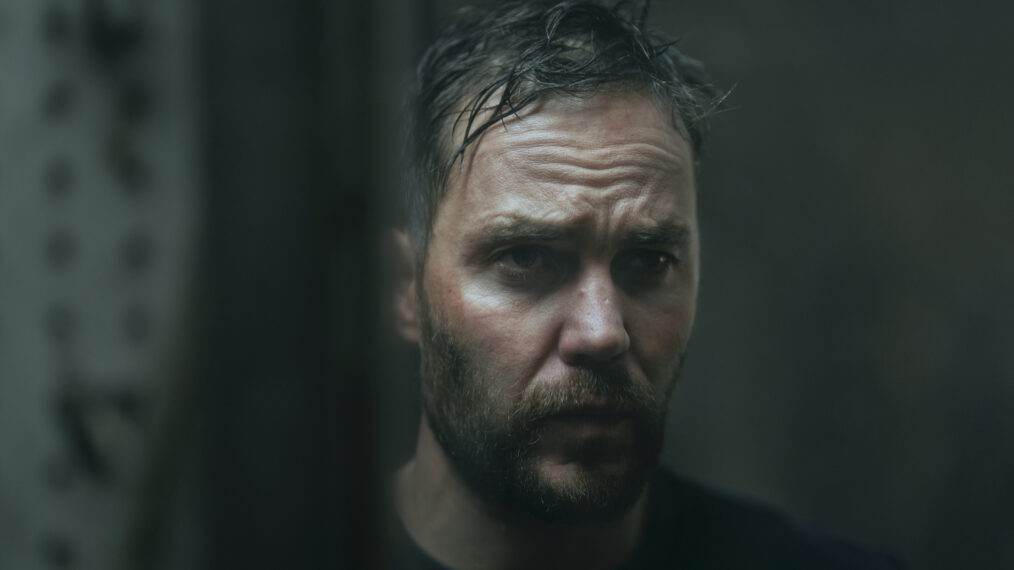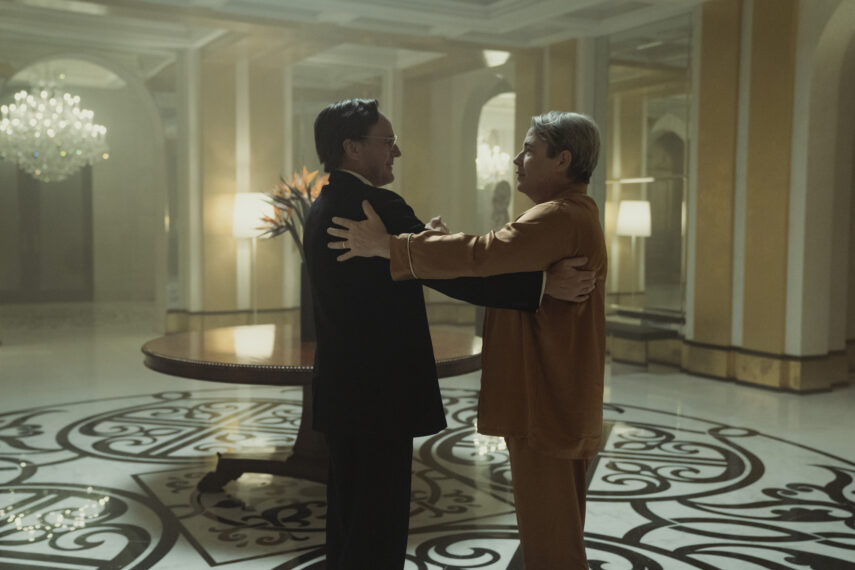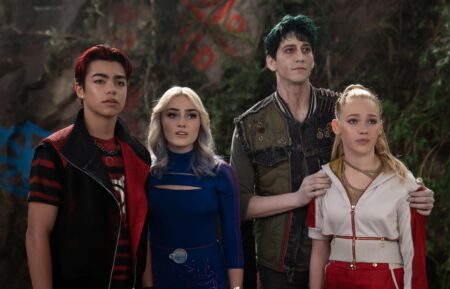‘Painkiller’: Taylor Kitsch Was ‘First & Only Call I Made’ When Casting Glen, Says Pete Berg

Q&A
[Warning: The following contains MAJOR spoilers for Painkiller.]
Pete Berg teamed up with Taylor Kitsch for Netflix‘s Painkiller, making for another Friday Night Lights reunion. In the Netflix limited series, which debuted Thursday, August 10, on the streamer, Kitsch plays Glen Kryger, a blue collar father of two who gets addicted to OxyContin after being prescribed the opioid to treat pain from a work injury. Berg, director and executive producer of the six-episode series, told TV Insider Kitsch was the only person he considered for the role.
Painkiller is a fictional story tracking the origins of the U.S. opioid crisis, the Sackler family/Purdue Pharma’s role in it, and the stories of families who lost loved ones to opioid overdoses in real life. The Sacklers and Purdue Pharma are still paying the price for their creation and alleged manipulative distribution of OxyContin today. In fact, the Supreme Court of the United States halted the company’s bankruptcy deal on the same day Painkiller premiered. (Read Berg’s response to the news here.)
Here, Berg breaks down the narrative choices made for Painkiller, from the fire alarm beep that haunts Matthew Broderick‘s Richard Sackler as much as the ghost of his late uncle, Arthur M. Sackler (Clark Gregg), to creating fictionalized characters to convey the stories.
In this series, we have characters who were fictionalized, and then some characters such as the Sacklers who exist in real life. How did you choose what got tweaked from the real-life circumstances and what stayed the same?
Pete Berg: It was challenging to portray the Sacklers because they’re so incredibly private and they’ve done a great job of scrubbing the internet. There’s very little out there. People have had to, you know, either sign NDAs or were scared of any kind of ramifications from the Sacklers if they talked. So it was hard to come up with concrete facts in terms of, they said this on this date, other than things that were in court depositions, which there are a lot of. Even those are very dry, so we had to come up with a way of trying to, and to kind of project what we think might’ve been in Richard Sackler’s mind.
That’s where the composite dynamic of him talking to his dead uncle Arthur Sackler came from. That was not a composite character, but a device that was created. It’s obviously not meant to be taken literally, but I think it’s reasonable to assume that Richard might have been having these kinds of thoughts in his head. And we manifest those with imagine conversations that he would’ve had if his uncle hadn’t died.
Uzo [Aduba’s] character, Edie Flowers, was a composite character of multiple attorney generals and folks that work for the DA’s office who tried to unpack the reality of what it was that Purdue Pharma did, which is very complicated and spans so much time that in order for us to be able to convey the big ideas of how we got into this situation, we felt we needed a character who could sort of guide us through that.

Keri Anderson/Netflix
Richard Sackler is haunted by a constantly beeping fire alarm. Was that meant to represent his guilty conscience?
Well, yeah, the fire alarms have always been going off in the back of his mind, I think. I’ve never been in his mind, so I don’t know for sure. But they might be a little bit louder right now.
It’s very hard to imagine a human being who would not at some moment in some deep, dark, quiet of their private soul, feel some kind of fear or some kind of lurking ramification in the form of some sort of karma if you’ve been making money selling heroin in a little pill.
And the irony is that his house is so big that he can barely reach his fire alarms.
There’s so many alarms, he can’t figure out which one is going off at any given moment.
It’s a Friday Night Lights reunion for you and Taylor Kitsch in this series. Did you consider anyone else for Glen’s role, and how was it working with Taylor again?
Obviously, I have a great relationship with Taylor. I’ve known him for so long, and I know that he’s had very personal family connections to OxyContin. He had a sister that struggled with a very serious OxyContin addiction, and he took time out from his career to help her. She’s good now, but I know how rough it was for Taylor and his family to go through an opioid addiction that intensely.
And so when the role came up and the story was starting to come together, Taylor’s always someone I think about for parts, but I immediately thought about him because I knew he was right for the role to play someone like Glen, a small business owner gets hurt on a job — that seems right in Taylor’s wheelhouse. The fact that he had such a personal connection to the opioid crisis made me calling him that much easier. He was the first and only call I made.
Friday Night Lights Season 2 was one of the shows impacted by the last WGA writers’ strike. What memories do you have of that strike period that are maybe coming back to you now as you’re promoting Painkiller with this second strike going on?
The first strike felt bad, but it felt as though it was just gonna be a matter of time and that it was fundamentally gonna just be about figuring out how to get some more money in the writers’ pockets. This one feels more complex. Netflix wasn’t an issue then, the streamers weren’t an issue, AI was not an issue. So there’s a bit more of an existential vibe around this one. It’s harder to see a quick path out of it, unfortunately. I think we’ll find one, but not for a moment.
Painkiller, Streaming Now, Netflix









